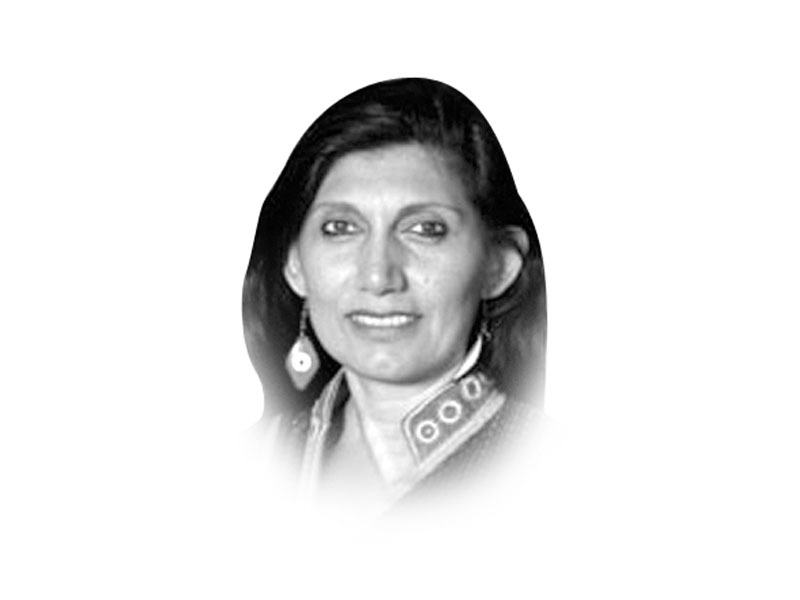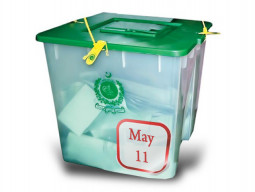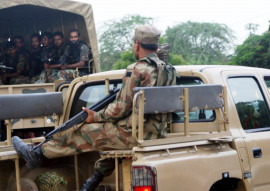
We have long complained about the feudals and tribal chiefs from Balochistan getting into politics and keeping this an area of dynastic rule. Each province has gone through its own dynamics but the people of Balochistan have suffered the most from the double jeopardy of undemocratic influences from Islamabad and from their own tribal elite. Provincial devolution and autonomy have opened the path for new possibilities for change.
Balochistan has always been an intriguing place. While Pashtuns in the north have a horizontal tribal power structure, the Baloch in the centre are very hierarchical, with their identities and rank tied strictly to their tribes. The southern Baloch tribal structures are not rigid and for decades, there has been a strong influence of modernism from across the Gulf. The central Baloch people remain stuck in their tribal traditions, ready to react aggressively to any deviation and always tense with Pashtuns. In contrast, the people of the south and west have been neglected by those in the central area.
Sometimes, being neglected can be a gift. The poor people of southern and western Balochistan have long gone abroad for jobs and sent back remittances for their families. This also resulted in exposure to international ideas which opened up the area to a greater diversity of values. They started educating their girls, involved their youth in productive activities and brought about change in their social hierarchies that could show the province how autonomy and not separation could be a midway to resolve Balochistan’s problems.
The ideas of the school of visionaries that developed in Balochistan from the times of Ghaus Bakhsh Bazinjo have never died. While the focus of the media has remained on separatists and big tribal leaders, the politics of ethics, vision and nationalism has survived and bloomed in the southern and western parts of Balochistan. Dr Abdul Malik Baloch, the head of the National Party, with his team of middle-class politicians, can be seen as a ray of hope that can significantly change the path of politics in the area and maybe, the nation. He set up thousands of schools when he was the minister for education and continues to groom women to join his party. Yet, he remains in the shadows of our election discussions.
In the past, such progressive and secular parties were ignored. Close to the elections, their core workers were tied down, blindfolded and thrown into remote areas for a few days to get them out of the way. This time, the Baloch militants are attacking them directly. Dr Malik narrowly escaped an attack just a few days ago and his workers also continue to be attacked. The election commission has to take notice of this and protect such parties there.
What we have been slow to realise is the change in the Pakistani nation that has gradually taken root over the past five years. Many who previously could not even dream of losing power are now at the mercy of popular opinion against them. Parties have chosen committed, middle-class people as candidates, adjusted seats with the Hazara Democratic Front, taken the risk of giving tickets to women candidates and avoided backing from major Baloch tribal powers. Observing these changes, one starts to gain faith in our democratic process.
In the coming days, we will see the election campaign unfold to its height. Provided that conditions are made somewhat safe, popular support will culminate in unexpected results. Let’s keep an eye on south Balochistan.
Published in The Express Tribune, May 1st, 2013.
COMMENTS (5)
Comments are moderated and generally will be posted if they are on-topic and not abusive.
For more information, please see our Comments FAQ





















































I wonder why we keep on hearing too much about democracy, peace, sufism, loyalty etc., from the people who chose U.S for their everything. Ms. Fouzia has got in to a position where she has to prove that she is not being paid by U.S for the projects she is executing from her NGO mherghar
I think more representation in the main Parliament from this region should solve issues to some extent.
interesting point of view may i point out that majority of baloch live outside balochistan
this article is amazing.. I had no idea South Balochistan had a separate kind of atmosphere.. Thanks for the insights
@Fouzia Saeed: "Many who previously could not even dream of losing power are now at the mercy of popular opinion against them. Parties have chosen committed, middle-class people as candidates,............"
I fully agree with your observation. If our brave Generals would not have been so adventurous in conquering their own nation on four different occasions in the last 50 years, this would have happened a long time ago. We, as a nation, should commit ourselves to never allow such escapades in the future.